
-
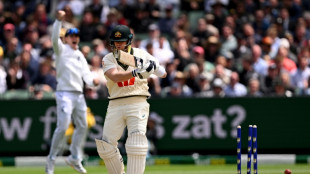 Australia reeling on 72-4 at lunch as England strike in 4th Ashes Test
Australia reeling on 72-4 at lunch as England strike in 4th Ashes Test
-
Too hot to handle? Searing heat looming over 2026 World Cup

-
 Packers clinch NFL playoff spot as Lions lose to Vikings
Packers clinch NFL playoff spot as Lions lose to Vikings
-
Guinea's presidential candidates hold final rallies before Sunday's vote

-
 Villa face Chelsea test as Premier League title race heats up
Villa face Chelsea test as Premier League title race heats up
-
Spurs extend domination of NBA-best Thunder

-
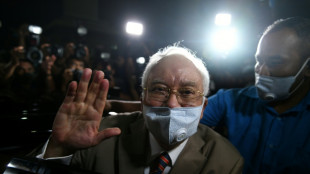 Malaysia's Najib to face verdict in mega 1MDB graft trial
Malaysia's Najib to face verdict in mega 1MDB graft trial
-
King Charles calls for 'reconciliation' in Christmas speech

-
 Brazil's jailed ex-president Bolsonaro undergoes 'successful' surgery
Brazil's jailed ex-president Bolsonaro undergoes 'successful' surgery
-
UK tech campaigner sues Trump administration over US sanctions

-
 New Anglican leader says immigration debate dividing UK
New Anglican leader says immigration debate dividing UK
-
Russia says made 'proposal' to France over jailed researcher
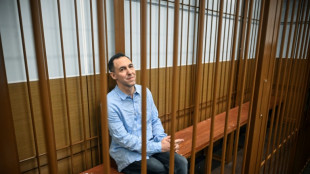
-
 Bangladesh PM hopeful Rahman returns from exile ahead of polls
Bangladesh PM hopeful Rahman returns from exile ahead of polls
-
Police suspect suicide bomber behind Nigeria's deadly mosque blast

-
 AFCON organisers allowing fans in for free to fill empty stands: source
AFCON organisers allowing fans in for free to fill empty stands: source
-
Mali coach Saintfiet hits out at European clubs, FIFA over AFCON changes

-
 Last Christians gather in ruins of Turkey's quake-hit Antakya
Last Christians gather in ruins of Turkey's quake-hit Antakya
-
Pope Leo condemns 'open wounds' of war in first Christmas homily

-
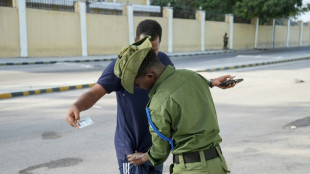 Mogadishu votes in first local elections in decades under tight security
Mogadishu votes in first local elections in decades under tight security
-
'Starting anew': Indonesians in disaster-struck Sumatra hold Christmas mass
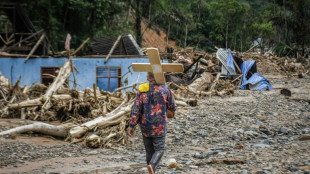
-
 Cambodian PM's wife attends funerals of soldiers killed in Thai border clashes
Cambodian PM's wife attends funerals of soldiers killed in Thai border clashes
-
Prime minister hopeful Tarique Rahman arrives in Bangladesh: party

-
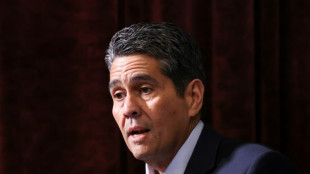 Pacific archipelago Palau agrees to take migrants from US
Pacific archipelago Palau agrees to take migrants from US
-
Pope Leo expected to call for peace during first Christmas blessing

-
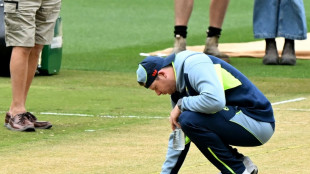 Australia opts for all-pace attack in fourth Ashes Test
Australia opts for all-pace attack in fourth Ashes Test
-
'We hold onto one another and keep fighting,' says wife of jailed Istanbul mayor

-
 North Korea's Kim visits nuclear subs as Putin hails 'invincible' bond
North Korea's Kim visits nuclear subs as Putin hails 'invincible' bond
-
Trump takes Christmas Eve shot at 'radical left scum'

-
 3 Factors That Affect the Cost of Dentures in San Antonio, TX
3 Factors That Affect the Cost of Dentures in San Antonio, TX
-
Leo XIV celebrates first Christmas as pope

-
 Diallo and Mahrez strike at AFCON as Ivory Coast, Algeria win
Diallo and Mahrez strike at AFCON as Ivory Coast, Algeria win
-
'At your service!' Nasry Asfura becomes Honduran president-elect
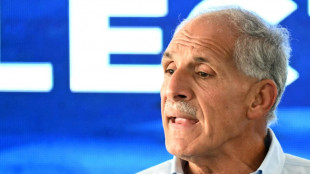
-
 Trump-backed Nasry Asfura declared winner of Honduras presidency
Trump-backed Nasry Asfura declared winner of Honduras presidency
-
Diallo strikes to give AFCON holders Ivory Coast winning start

-
 Spurs captain Romero facing increased ban after Liverpool red card
Spurs captain Romero facing increased ban after Liverpool red card
-
Bolivian miners protest elimination of fuel subsidies
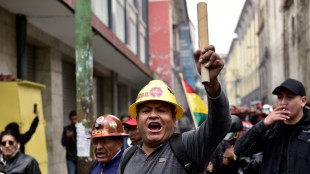
-
 A lack of respect? African football bows to pressure with AFCON change
A lack of respect? African football bows to pressure with AFCON change
-
Trump says comedian Colbert should be 'put to sleep'

-
 Mahrez leads Algeria to AFCON cruise against Sudan
Mahrez leads Algeria to AFCON cruise against Sudan
-
Southern California braces for devastating Christmas storm
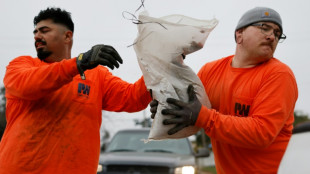
-
 Amorim wants Man Utd players to cover 'irreplaceable' Fernandes
Amorim wants Man Utd players to cover 'irreplaceable' Fernandes
-
First Bond game in a decade hit by two-month delay

-
 Brazil's imprisoned Bolsonaro hospitalized ahead of surgery
Brazil's imprisoned Bolsonaro hospitalized ahead of surgery
-
Serbia court drops case against ex-minister over train station disaster
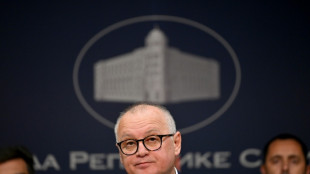
-
 Investors watching for Santa rally in thin pre-Christmas trade
Investors watching for Santa rally in thin pre-Christmas trade
-
David Sacks: Trump's AI power broker

-
 Delap and Estevao in line for Chelsea return against Aston Villa
Delap and Estevao in line for Chelsea return against Aston Villa
-
Why metal prices are soaring to record highs

-
 Stocks tepid in thin pre-Christmas trade
Stocks tepid in thin pre-Christmas trade
-
UN experts slam US blockade on Venezuela


Malaria mortality returns to pre-Covid levels: WHO
Malaria mortality has fallen back to levels seen before the Covid-19 crisis, the WHO said Wednesday, but called for faster progress against the disease that killed nearly some 597,000 people last year.
In a new report, the World Health Organization estimated that there were 263 million cases of malaria worldwide in 2023 -- 11 million more than a year earlier -- while the death toll remained relatively stable.
But in terms of the mortality rate, "we have come back to pre-pandemic numbers", Arnaud Le Menach, of the WHO's Global Malaria Programme, told reporters.
In 2020, disruptions caused by the Covid-19 pandemic led to a sharp increase in malaria-related mortality, with an additional 55,000 deaths counted that year.
Since then the total number of deaths from malaria, which is caused by a mosquito-borne parasite, has gradually shrunk, as has the mortality rate.
The estimated 2023 mortality rate in Africa of 52.4 deaths per 100,000 population at risk meanwhile still remains more than double the target level set by a global strategy for combatting malaria through 2030, WHO said, insisting "progress must be accelerated".
- Vaccine promise -
WHO pointed to the wider rollout of malaria vaccines as a promising development, expected to save tens of thousands of young lives each year.
The two jabs currently in use, RTS,S and R21/Matrix-M, hold the promise of significantly easing the burden in Africa, which accounts for up to 95 percent of all malaria deaths.
Malaria vaccines were first introduced in April 2019, first in Malawi, with Kenya and Ghana following suit.
Through the end of 2023, nearly two million children in those three countries received jabs of the RTS,S vaccine, WHO said.
"We saw in those three pilot countries... a 13-percent drop in mortality during the four years of the pilot programme," said Mary Hamel, who heads WHO's malaria vaccine team.
The WHO now looked forward to seeing a similar drop in other countries introducing the vaccines, she told reporters, pointing out that countries that began introducing the jabs early this year were "following a similar trajectory".
So far, 17 nations across sub-Saharan Africa have included the jabs in their routine immunisation programmes, she said
Another eight countries had been approved to receive funding towards introducing the vaccines through the vaccine alliance GAVI, WHO said.
- 'Curb the threat' -
In another promising development, new-generation dual-insecticide nets nets are becoming more widely available.
These nets, which are coated in a new generation pyrrole insecticide in combination with the standard pyrethroid insecticide, have been shown to offer far better protection against malaria.
The WHO estimated earlier this year that such nets had averted 13 million malaria cases and nearly 25,000 deaths over three years.
Despite the successes, the WHO highlighted a number of factors slowing the battle against malaria, including a lack of funds and insufficient stocks of vaccines, as well as climate change, which is allowing a greater spread of the mosquitos that carry the parasite that causes malaria.
"Stepped-up investments and action in high-burden African countries are needed to curb the threat," WHO chief Tedros Adhanom Ghebreyesus said in a statement.
The Global Fund, a partnership set up to battle AIDS, tuberculosis and malaria, agreed.
"Progress has stagnated for several years," its executive director Peter Sands warned in a statement.
"To overcome this, we must accelerate our efforts through a dual approach: investing in new technologies while simultaneously easing the strain that climate change places on healthcare systems," he said.
Th.Berger--AMWN

